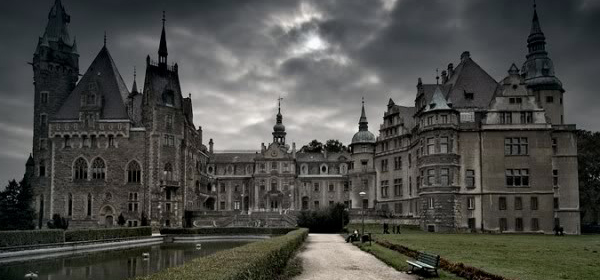
Leon Archer, GM of Spellbound
Hello, and welcome to another Roleplaying Focus.
Today, I’d like to talk about various genres people play in their games, and why they play that particular genre. For this I’m going to need a some of the OngoingWorlds players to join in!
Leon Archer, GM of Spellbound
Spellbound is a high fantasy game involving students at the mage academy of Aetherion.
I’ll shamelessly start with my own game in OngoingWorlds, Spellbound. It’s a game with magic, mages, ethereal creatures. castles, and dragons. I like to split fantasy into two sub-genres into itself, just because fantasy involves such a wide variety of themes. For me, there’s high and low fantasy. High fantasy, such as Spellbound is all about being as far away from the norm as you can. It’s allows players to be completely creative at time, which is why I love it so personally. The tricky part is generally to avoid clichés or becoming so powerful and nothing is ever going to threaten that character. Although, through experience I have certainly have developed ways of doing so, heh heh. For me, I’ve found that because of sheer scope of a high fantasy game, it allows players a much easier time in accessing a roleplay without having to worry so much about the constraints of the world their character is in, or fitting his character perfectly with the lore. It’s a much more flexible genre. Read More




 It’s worth noting that we don’t just have contributions coming from participants, although many of our sponsors do play the game. Several are just friends of the game or fans of the idea of collaborative real-time storytelling. Honestly, I’d prefer to see more patrons supporting our creative efforts from outside the playerbase. It just feels so unfair sometimes, going back to the same well and asking for help from the same people, time and again. I’ve been very lucky, though. We have some extremely supportive players. All that said: It is absolutely voluntary. There’s no price of admission and no membership dues. You can join the saga and never contribute a dime – you’ll still be welcome.
It’s worth noting that we don’t just have contributions coming from participants, although many of our sponsors do play the game. Several are just friends of the game or fans of the idea of collaborative real-time storytelling. Honestly, I’d prefer to see more patrons supporting our creative efforts from outside the playerbase. It just feels so unfair sometimes, going back to the same well and asking for help from the same people, time and again. I’ve been very lucky, though. We have some extremely supportive players. All that said: It is absolutely voluntary. There’s no price of admission and no membership dues. You can join the saga and never contribute a dime – you’ll still be welcome.  One of the most important and obvious aspects of a text-based roleplaying game is that it uses text. But we don’t just have to stick to the written form, many roleplaying games use imagery and cool graphics to convey ideas, places, characters and mood. After all, a picture is worth a thousand words!
One of the most important and obvious aspects of a text-based roleplaying game is that it uses text. But we don’t just have to stick to the written form, many roleplaying games use imagery and cool graphics to convey ideas, places, characters and mood. After all, a picture is worth a thousand words!

 Roleplay primarily focuses on military starships and their crews. We’re just coming out of a multi-year metaplot that was war-centric, so we’re starting to shift focus onto independent adventure plots on the dangerous frontiers of the major empires and improving the diversity of plot types and character types.
Roleplay primarily focuses on military starships and their crews. We’re just coming out of a multi-year metaplot that was war-centric, so we’re starting to shift focus onto independent adventure plots on the dangerous frontiers of the major empires and improving the diversity of plot types and character types. It’s hard not to notice a game when it’s almost always on the “recently updated” list on the homepage of
It’s hard not to notice a game when it’s almost always on the “recently updated” list on the homepage of 
 The idea for
The idea for 
